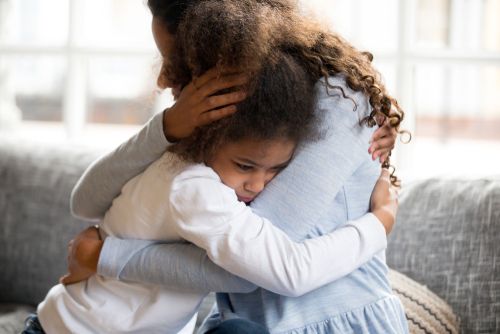 Few things in life are certain, but most of us will deal with the death of someone we know somewhere along the way. Losing a loved one is a difficult thing to manage and process as an adult, but it can be especially challenging for children. As with grownups, different factors will impact a child’s feelings about death. If they’re at a very young age or close to the deceased, death can be very difficult and distressing for kids. Here are some tips for helping a child you know deal with grief over the loss of life.
Few things in life are certain, but most of us will deal with the death of someone we know somewhere along the way. Losing a loved one is a difficult thing to manage and process as an adult, but it can be especially challenging for children. As with grownups, different factors will impact a child’s feelings about death. If they’re at a very young age or close to the deceased, death can be very difficult and distressing for kids. Here are some tips for helping a child you know deal with grief over the loss of life.
Be Open and Honest
Children trust adults to explain things to them, so honesty is the best policy. Age isn’t just a number, so not only should the conversation be age-appropriate but also appropriate for the individual child. It is best to be truthful, direct and accurate about what happened. A kid will likely have many questions about the facts and the future, including thoughts about an afterlife. Be open about what you think, and it’s fine to tell a youngster when you’re not sure about something or you simply don’t know. Showing your sadness isn’t a bad thing either.
Listen and Support
Conversations help many people process their thoughts and feelings about death, and children are no exception. Give your child the time and space to share their thoughts. Recognize that no two kids are the same when it comes to processing and reacting to new information. Tears are to be expected and encouraged, although you may be met with silence or other emotions and behaviors. Make yourself available for hugs and conversations to offer support. Validate feelings and provide reassurance as much as possible.
Encourage Creative Expression
Kids will often look for ways to express their feelings, and you can help by providing creative outlets. Your youngster might want to draw pictures to cope with the loss. Another child may want to capture thoughts with poetry or prose. Music and dance are other healthy ways for kids to process their emotions. Completing crafts, cooking meals and playing games are other responses to death that should be supported.
Explain What’s Ahead
Life will certainly be different for your child after a loved one has passed. The death of someone close like a parent or sibling can turn their world upside down. It’s important to set expectations about what’s ahead. This may involve re-establishing boundaries and rules or creating new boundaries and routines. Your child may be used to a bedtime story from a deceased parent, and you may have to take over story time or establish a new tradition. This is also a good opportunity to discuss an upcoming funeral, burial or other death-related events. A child may feel that things are falling apart, and open conversations about what’s coming as well as setting rules and expectations can help anchor youngsters.
Take Care of Yourself
It’s important that you take care of yourself when dealing with loss. Eating well-balanced meals, exercising and getting good rest are not only good for you, but they’re also good for any children in your care. If you’re not well, that can negatively impact the way they process their grief.
Seek Help
The grief process can take a lot out of you physically, mentally, emotionally and even spiritually. While we’d love to always be there for our children, sometimes we need help from others. Getting therapy for grieving kids (and yourself) is always a good idea. Reach out to family and friends for assistance with duties, especially as it relates to funeral arrangements. Getting help for yourself encourages your children to also ask for help.
In life, death is a certain thing. As adults, it is our charge to provide knowledge, wisdom and support to children as they grow and experience things, including the loss of life. Help your children by being open, communicative, supportive and accessible.